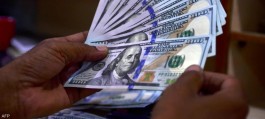The preliminary results of the Swiss National Bank (central) showed an annual loss of about 132 billion francs ($143 billion), which exceeds 5 times the previous record.
According to Bloomberg, this loss is the largest in the bank's 116-year history, which will result in the Swiss government not receiving payments for 2022.
The bulk of that sum (131 billion francs) comes from the collapsing valuations of its large foreign exchange holdings, built up as a result of decade-long purchases to weaken the franc.
Positions in Swiss francs saw a valuation loss of around CHF1 billion, while the Swiss National Bank gained around CHF400 million on its gold holdings.
This is only the second time since the SNB was founded in 1906 that it has had to skip its annual payments to the Swiss federal government and cantons, forcing many of the 26 administrative cantons to adjust their spending plans. This compares to CHF6 billion in payments in 2021.
The conference of cantonal heads of finance said that while the loss was unfortunate, the interim dividend indicated such an outcome.
The conference was quoted: It is an established fact that SNB earnings fluctuate widely and dividends cannot be taken for granted.
Private shareholders will not receive a dividend for 2022 either. Unlike other central banks, the Swiss National Bank is a publicly traded company, with public sector institutions owning about half of the shares and the rest held by corporations and individuals.
Profits from the SNB's operations do not affect monetary policy. Final results are due on March 6.









































